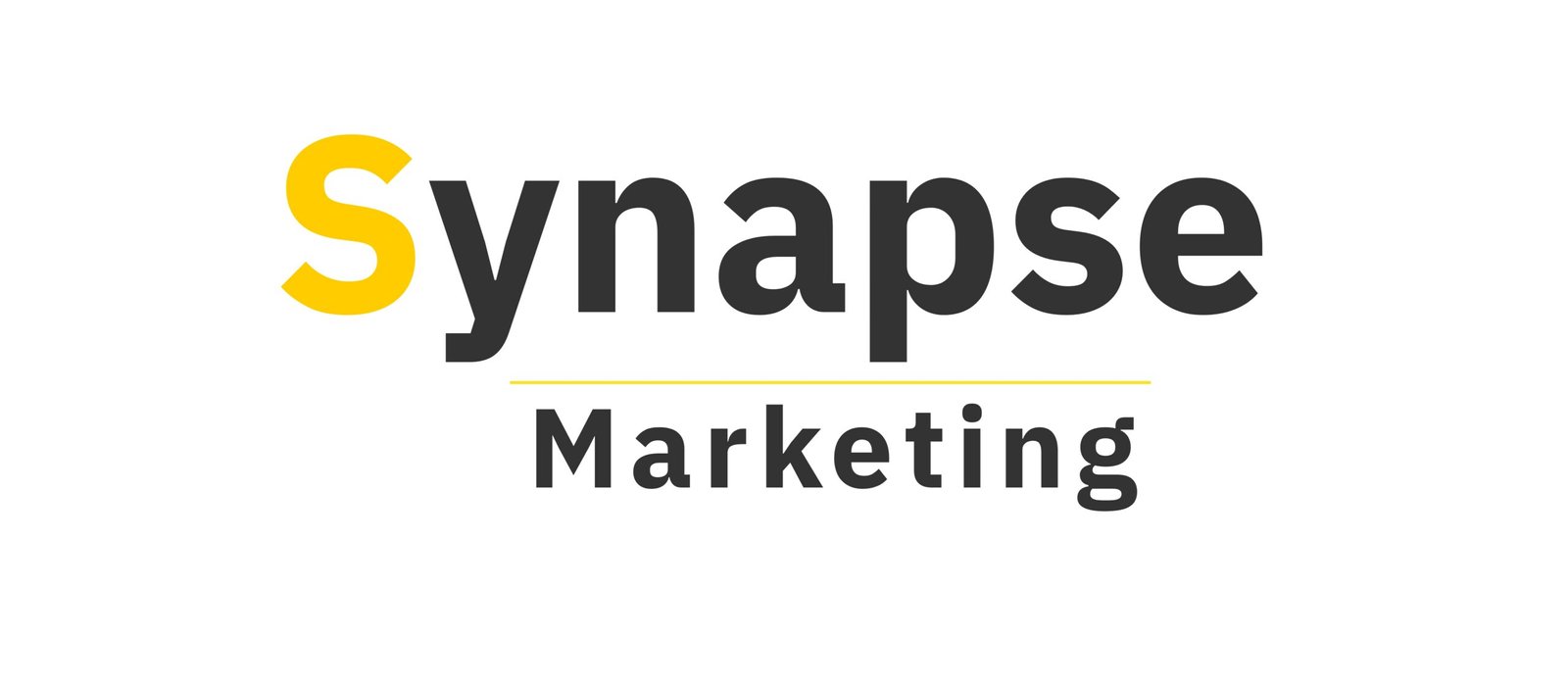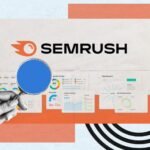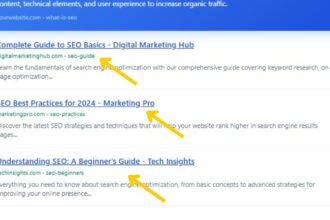You’re ready to level up your SEO—but which tool is best for SEO today?
If you’ve ever Googled that question mid-coffee-break or just before a marketing meeting, you’re not alone. In 2025, with AI-integrated platforms, smarter search engines, and tighter competition for digital attention, the quest for the perfect SEO tool has only gotten more complex—and more critical.
The truth? There’s no single tool that fits every strategy. The best SEO tool for you depends on what you’re aiming to accomplish. Are you tracking rankings across global SERPs? Do you need to optimize content with LSI keywords that align with evolving search intent? Or are you analyzing what your top competitors are ranking for so you can beat them at their own game?
That’s exactly what this guide is here to answer. We’re breaking down which tool is best for SEO based on specific goals—whether you’re focused on keyword research, technical audits, content optimization, or competitor insights. We’ll explore not just what the tools do, but why their features matter in today’s SEO landscape.
And here’s the twist: modern SEO isn’t just about hitting the right keywords anymore. Tools that leverage Natural Language Processing (NLP) and Latent Semantic Indexing (LSI) are rapidly becoming the secret weapons of successful marketers. Google’s algorithms now crave content that understands context, semantics, and user intent—so the tools you choose need to do the same.
So, which tool is best for SEO when goals vary? Let’s unpack it—one use case at a time.
Understanding the SEO Landscape in 2025
If you’re still thinking SEO is just about plugging in keywords and waiting for clicks—think again. The SEO terrain in 2025 is vastly more nuanced, shaped by evolving algorithms, smarter search engines, and user behavior that’s anything but predictable.
At its core, search engine optimization today is a dance between relevance and intelligence. It’s no longer enough to target high-volume keywords—you now need to understand the user’s intent, deliver contextually rich content, and ensure your site structure, speed, and authority meet Google’s ever-rising standards.
That’s where NLP (Natural Language Processing) and LSI (Latent Semantic Indexing) come in. These aren’t just trendy tech buzzwords—they’re the building blocks of how search engines interpret content. NLP enables Google to read between the lines, understanding not just what you wrote but why you wrote it. LSI, on the other hand, helps your content become semantically rich by identifying terms that naturally relate to your primary keyword—think search engine tools, SEO software, SERP ranking monitors, and so on.
Here’s the kicker: the top SEO tools in 2025 are built to help you ride this wave—not fight it. From advanced content optimization platforms that surface semantically related terms, to rank tracking software that adapts in real time to SERP changes, the tools are smarter because the stakes are higher.
So when asking, which tool is best for SEO today, the real question becomes: Which one helps you stay ahead in an environment driven by user intent, semantic depth, and algorithmic evolution?
That’s exactly what we’ll dive into next—with a breakdown of the top SEO tools by specific use cases.
5 Key SEO Use Cases That Determine the “Best Tool”
Let’s clear something up right now: asking “Which tool is best for SEO?” is like asking “What’s the best vehicle?” It depends—are you racing, hauling, off-roading, or just commuting?
The same logic applies to SEO. Different goals demand different tools. A platform built for rank tracking might fall short in content optimization. A great content editor may not deliver competitor intel. That’s why understanding your core use case is the first step to choosing the right tool.
Here are the main SEO functions that shape your decision:
1. Keyword Research
At the heart of every SEO strategy is a solid keyword map. Whether you’re targeting long-tail keywords, discovering untapped search queries, or clustering topics for semantic depth, you need tools that go beyond surface-level search volumes.
What to look for: keyword gap analysis, LSI keyword suggestions, search intent data, and question-based queries.
2. Rank Tracking
It’s one thing to create optimized content—it’s another to monitor how it performs. Daily SERP updates, mobile vs. desktop tracking, and geo-specific rankings help you understand what’s working and what’s tanking.
What to look for: real-time ranking updates, visibility metrics, and historical trends.
3. Content Optimization
Google’s algorithms now reward content that’s semantically rich and contextually on-point. You need tools that suggest on-page improvements, analyze readability, and recommend NLP-aligned keyword inclusion.
What to look for: content scoring, SERP content analysis, semantic keyword suggestions, and readability audits.
4. Competitor Analysis
Spying on the competition isn’t just smart—it’s strategic. Understanding where your rivals are winning (and how) can give you a roadmap to overtake them.
What to look for: backlink gap tools, content comparison, keyword overlap, and domain-level audits.
5. Technical SEO & Audits
Broken links, bloated code, and slow load speeds can tank your rankings—no matter how good your content is. Technical audits help you fix the issues Google sees before your users do.
What to look for: crawlability reports, site health scores, mobile-friendliness checks, and structured data validation.
In the sections that follow, we’ll break down which SEO tool excels at each of these functions. Because at the end of the day, which tool is best for SEO hinges on this: What do you need it to do?
Let’s start with the heavy hitters.
4 Best SEO Tools by Use Case
So, you’ve got the SEO goals lined up. Now comes the big question—which tool is best for SEO when you’re looking to nail rank tracking, crush competitor insights, or fine-tune content for peak performance?
Let’s unpack the top tools in 2025, each matched to the specific job it does best. No fluff, just function.
Semrush — Best for Rank Tracking & Keyword Discovery
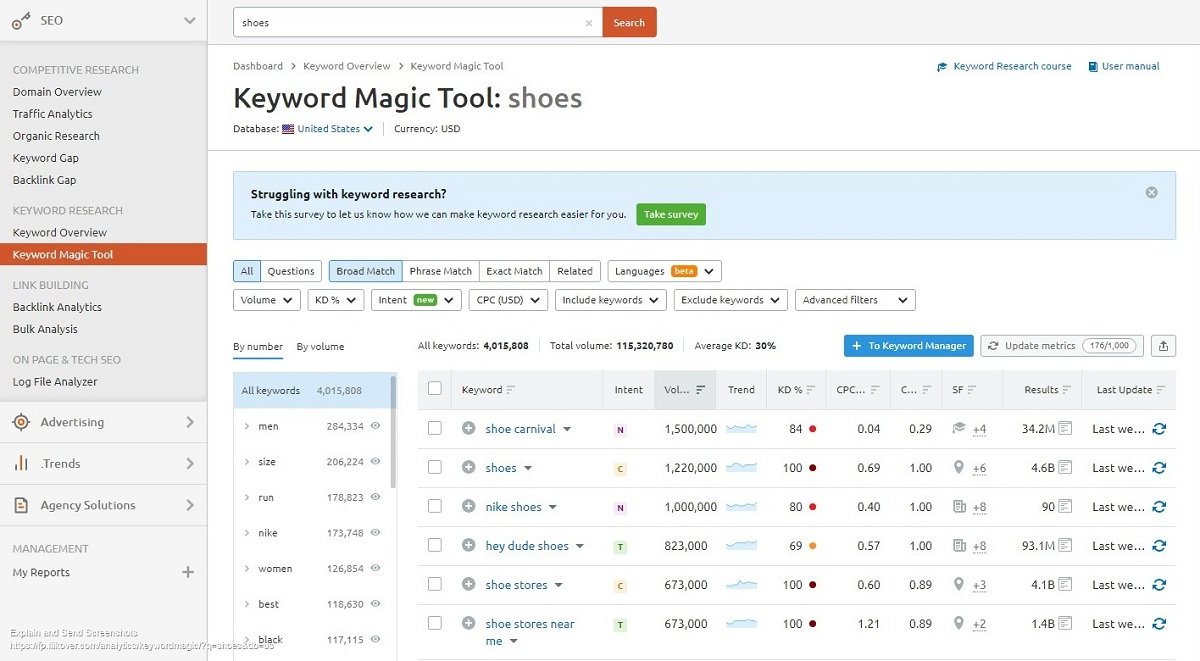
If you’re laser-focused on visibility, Semrush is your all-seeing eye. This tool is a rank tracking powerhouse, offering pinpoint accuracy on keyword movements, domain performance, and SERP volatility. Whether you’re monitoring a single page or scaling up across hundreds of URLs, Semrush makes data digestible—and actionable.
Why it’s a leader:
- Keyword Magic Tool: Discover high-performing keywords, LSI variants, and long-tail goldmines.
- Position Tracking: Daily updates with device and geo-targeting filters.
- Backlink Gap + Keyword Gap: See what your competitors have that you don’t—then take it.
- Custom dashboards: Monitor traffic, authority, and visibility at a glance.
Perfect for: Agencies, enterprise teams, and any SEO pro who needs a bird’s-eye view of the battlefield.
If your main concern is “which tool is best for SEO tracking and keyword intelligence,” Semrush should top your shortlist.
Ahrefs — Best for Competitor Analysis & Keyword Analytics
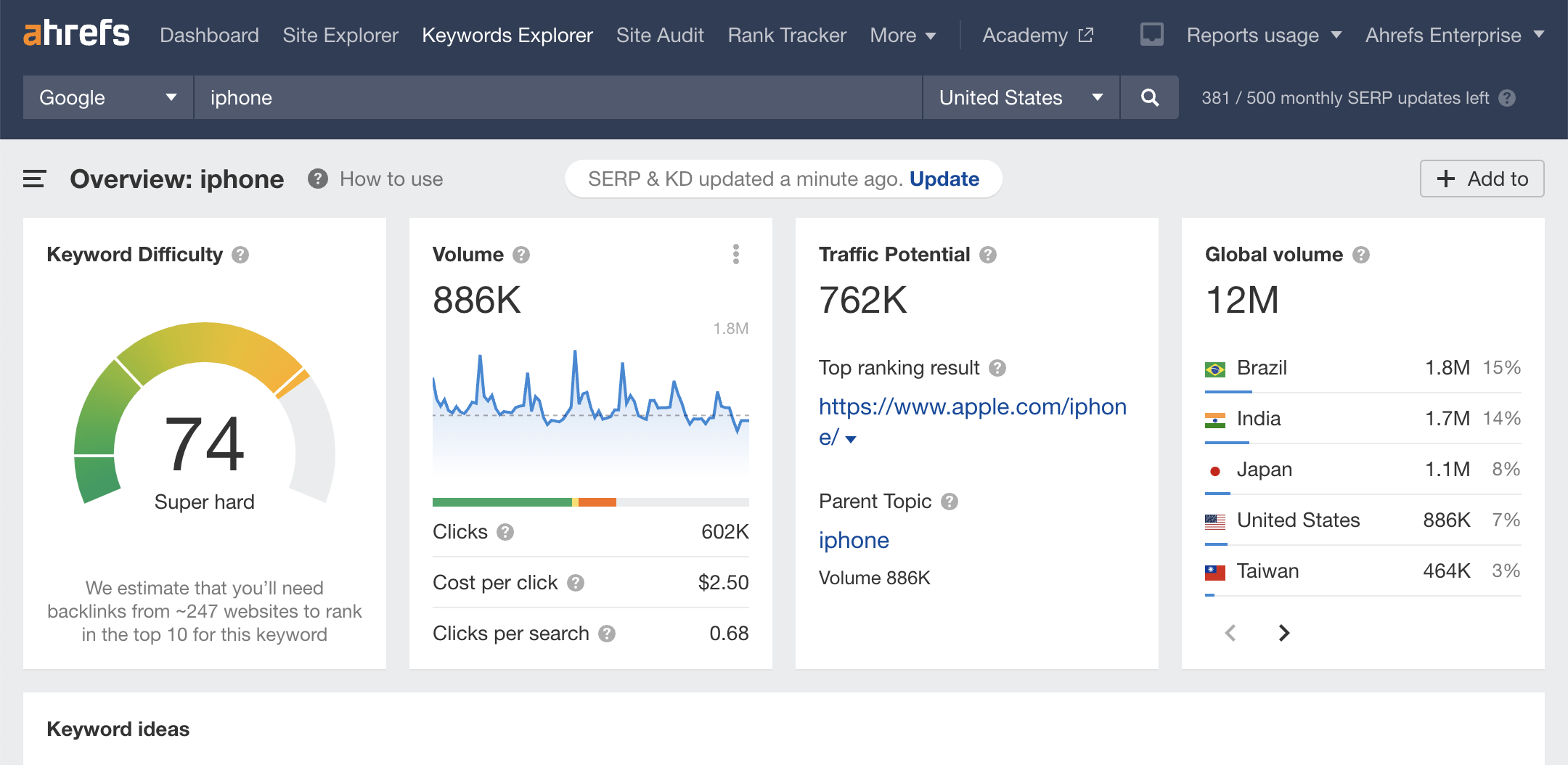
Ahrefs is built for those who want to dig. Its strength lies in reverse-engineering what’s working for competitors, then equipping you with the data to outrank them. It doesn’t just show you where they’re ranking—it tells you why.
Why it dominates:
- Content Gap + Link Intersect: Find what’s missing from your strategy.
- Traffic Value Metrics: Go beyond search volume—what’s profitable?
- Historical Rank Tracking: See how positions have evolved over time.
- Keyword Explorer: Uncover terms with real potential and semantic depth.
Perfect for: SEO strategists, in-house marketing teams, and content managers who love data-rich insights.
Still wondering which tool is best for SEO if competitor insights drive your strategy? Ahrefs is your intel machine.
seoClarity — Best All-in-One Suite with AI Content Support
When you want everything in one place, seoClarity delivers—especially for large-scale sites and enterprise players. This tool uses AI not just to measure performance, but to actively optimize content based on evolving search patterns.
What makes it stand out:
- Content Fusion: AI-driven writing assistant using NLP and search intent mapping.
- Trend Analysis & Forecasting: Get ahead of SEO shifts, not behind.
- Deep Crawl Capabilities: Technical audits at scale.
- Customizable Reporting: Tailor your dashboards to what matters most.
Perfect for: Enterprise brands, large teams, and SEO leads managing vast site ecosystems.
Want to know which tool is best for SEO at scale, with AI baked in? seoClarity is the suite to beat.
Surfer SEO — Best for Content Optimization & LSI Integration
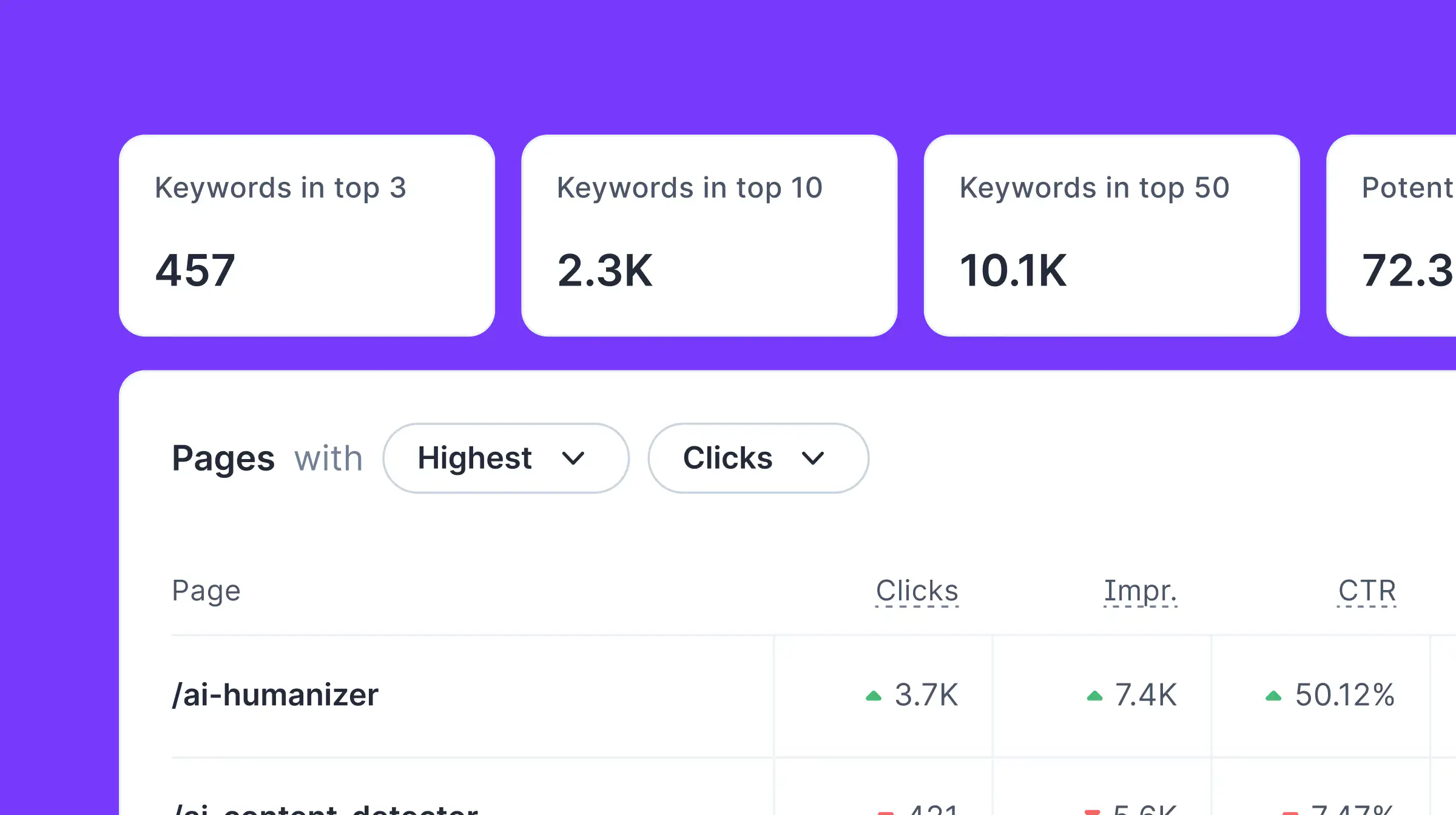
Surfer SEO is where data meets creativity. It takes your content and aligns it with what’s actually ranking, using LSI keywords and NLP-based analysis to sharpen every headline, paragraph, and meta tag.
Where it shines:
- Content Editor: Real-time suggestions based on top SERP competitors.
- Audit Tool: On-page improvements down to the sentence level.
- LSI Keyword Integration: Enhances semantic richness and contextual relevance.
- Chrome Extension: Instant keyword insights during your Google searches.
Perfect for: Writers, bloggers, content strategists, and SEO editors who live in the SERP trenches.
For those who ask which tool is best for SEO content alignment and on-page optimization, Surfer SEO is a surgical weapon.
5 Tools That Deserve Attention
Not every SEO need requires a heavyweight suite. Sometimes, a leaner tool with the right feature set is the smartest play. If you’re asking which tool is best for SEO in a niche use case or on a tighter budget, these contenders deserve a serious look.
SERPstat – The Swiss Army Knife for Small Teams
If you’re a freelancer or part of a small team that needs multi-functional SEO support without breaking the bank, SERPstat brings the goods.
What it does well:
- Rank tracking with visual trends
- Keyword research with LSI suggestions
- Competitor analysis and backlink tools
- Easy-to-use site audit reports
Best for: Solo SEOs, small businesses, digital marketing startups
GrowthBar – SEO Meets AI Content Creation
GrowthBar takes a hybrid approach—combining keyword research with AI-generated content outlines, headlines, and even paragraph suggestions.
Why it’s unique:
- AI blog builder for faster publishing
- Chrome extension for on-the-fly SEO research
- Keyword difficulty, volume, and CPC data in one click
Best for: Content marketers, bloggers, and lean SEO teams who value speed and AI assistance
AnswerThePublic – The King of Question-Based Keywords
Built for content ideation and topic clustering, AnswerThePublic visualizes the questions people are actually asking—ideal for capturing long-tail and voice search queries.
What it’s perfect for:
- Discovering “People Also Ask” topics
- Generating blog ideas and FAQ content
- Mapping keyword clusters semantically
Best for: Copywriters, SEO content creators, content planners focused on intent
SEO PowerSuite – The Desktop Workhorse
Prefer local software over browser-based platforms? SEO PowerSuite is a downloadable toolkit that includes everything from rank tracking to backlink audits.
Why it stands out:
- One-time licensing model (great for budgeters)
- Offers four core modules: Rank Tracker, SEO SpyGlass, WebSite Auditor, LinkAssistant
- Fully customizable reports
Best for: SEOs who want control, privacy, and offline capability
Keyword Generator Tools – The Unsung Heroes of Semantic SEO
While they aren’t full SEO suites, tools like LSIGraph, Ahrefs Keyword Explorer, and Semrush Keyword Magic Tool are vital for building content that ranks and resonates.
Use them for:
- Finding LSI and semantically related terms
- Expanding keyword clusters for content briefs
- Aligning with Google’s NLP expectations
Best for: Anyone looking to inject real semantic depth into their SEO writing
Bottom line? If your SEO needs are specific—whether that’s content ideation, AI writing, or desktop auditing—these tools might be exactly what you need. Because sometimes, the best SEO tool is the one built for a very particular job.
Why LSI and NLP are the Future of SEO
If you’re still laser-focused on keywords alone, you’re playing SEO on “easy mode” — and Google has long moved on. The real leaders are optimizing content with context, semantics, and search intent in mind. That’s where Latent Semantic Indexing (LSI) and Natural Language Processing (NLP) come in — and where modern SEO tools truly separate themselves.
What is LSI, and Why Should You Care?
LSI keywords are not just synonyms—they’re conceptually related terms that reinforce topic relevance. For example, if your page is about “SEO tools,” LSI phrases might include “keyword research,” “SERP tracking,” “content audit,” and “backlink analysis.”
By integrating these naturally, you’re telling Google:
“Hey, this content covers the full topic, not just a slice of it.”
Tools like Surfer SEO, Semrush Keyword Magic Tool, and LSIGraph surface these LSI terms so you can strategically place them across headings, subheadings, meta descriptions, and body content.
NLP: Teaching Google to Read Like a Human
Google’s BERT and MUM algorithms use Natural Language Processing to understand queries contextually, not just by matching strings of words. This means your content must answer intent, not just include exact-match keywords.
NLP-focused tools like:
- seoClarity’s Content Fusion
- Frase
- Surfer SEO’s NLP analysis module
…help you optimize content around how people ask and why they ask it—not just what they type. They scan top-ranking pages, identify recurring phrasing patterns, and suggest NLP-aligned terms that elevate your content’s semantic profile.
Real Results: Why LSI + NLP Matter
- Higher topical relevance = better rankings for both primary and long-tail keywords
- Improved dwell time and user engagement = stronger behavioral signals for SEO
- More featured snippets and voice search visibility
According to recent studies, incorporating NLP and LSI strategies into your SEO can boost organic traffic by 20–30%—especially when guided by the right tools.
So when you’re wondering “which tool is best for SEO” in this post-BERT world, the answer isn’t just about rank tracking or backlink metrics. It’s also about how well the tool integrates semantic intelligence, contextual optimization, and intent-first architecture.
Comparison Table: Which Tool is Best for SEO Based on Needs?
With so many high-performing SEO tools on the market, it’s easy to feel overwhelmed. So let’s simplify the decision.
This table breaks down the top contenders by primary strength, key features, NLP/LSI capability, and pricing range — so you can pinpoint which tool is best for SEO according to your goals and budget.
| SEO Tool | Best For | Key Features | NLP/LSI Support | Pricing Range |
| Semrush | Rank tracking, keyword research | Keyword Magic Tool, Position Tracking, Competitor Gap Analysis | Strong LSI support | $139.95 – $499.95/month |
| Ahrefs | Competitor analysis, keyword analytics | Content Gap, Link Intersect, Traffic Value, Keyword Explorer | Indirect via keyword explorer | $29 – $4499/month |
| seoClarity | All-in-one SEO with AI content insights | Content Fusion, Rank Intelligence, Site Audits, Custom Dashboards | Advanced NLP integration | Custom pricing |
| Surfer SEO | Content optimization, LSI keyword use | Content Editor, SERP Analyzer, Audit Tool, Chrome Extension | Robust LSI/NLP layer | $59 – $239/month (varies) |
| SERPstat | Budget-friendly multi-function SEO | Rank Tracking, Keyword Clustering, Competitor Graphs | Basic semantic suggestions | Varies by tier |
| GrowthBar | AI-assisted content generation | AI Blog Builder, Chrome Extension, Keyword Data | Limited NLP capabilities | $29 – $129/month |
| AnswerThePublic | Long-tail keyword and topic ideation | Visual keyword cloud, question-based clusters | No direct NLP/LSI tools | Free + Premium options |
| SEO PowerSuite | Desktop-based SEO suite | Rank Tracker, Site Auditor, Link Assistant, Offline Access | No built-in LSI/NLP | One-time license or free |
| LSIGraph / Keyword Generators | Semantic keyword discovery | LSI keyword suggestions, topical clustering, search intent expansion | LSI-specific functionality | Free & Paid options |
Choose Based on Goals, Not Hype
- Want enterprise-level tracking and keyword depth? Semrush is the workhorse.
- Need serious competitor deconstruction? Ahrefs gets surgical.
- Looking for AI-driven, intent-focused SEO? seoClarity leads the pack.
- Optimizing content for semantic richness? Surfer SEO is your best friend.
So again, when you ask which tool is best for SEO, zoom out. Think beyond brand names. Match the tool to the mission.
Recommendations: Choosing the Right Tool for Your Goals
By now, you’ve seen the landscape. You know the players. But the million-dollar question still stands: Which tool is best for SEO—for you?
Let’s break it down by specific goals and what matters most depending on where you are in your SEO journey:
If You’re Focused on Keyword Research & SERP Domination…
Go with Semrush. Its Keyword Magic Tool, Position Tracking, and SERP features analysis give you complete visibility over what keywords to target, how competitive they are, and how you’re performing across devices and regions.
Best for: Marketing teams, agencies, growth-focused businesses
Why: Combines keyword depth with competitive and technical insights
If You Need Competitor Intel to Build Strategy…
Choose Ahrefs. Its strength lies in showing you what’s already working for your competitors—and how to do it better.
Best for: SEO strategists, link builders, content marketers
Why: Unmatched backlink database and SERP-level data
If Content is King and You Want Semantic Precision…
Pick Surfer SEO. It’s built to win the content game with LSI-powered suggestions, NLP integration, and real-time SERP optimization.
Best for: Writers, bloggers, content teams
Why: Bridges creativity and data for content that ranks and reads well
If You Need an AI-Powered, All-in-One Platform…
Go all-in with seoClarity. Its AI-first mindset, massive data capabilities, and enterprise-level dashboards make it ideal for managing complex SEO operations at scale.
Best for: Enterprises, advanced SEOs, data-driven organizations
Why: Combines NLP, technical audits, and predictive trend tools in one stack
If You’re Just Starting Out or on a Budget…
Try SERPstat or GrowthBar. Both deliver surprising value with keyword insights, rank tracking, and content planning tools—without the high-end pricing.
Best for: Freelancers, startups, budget-conscious marketers
Why: Simpler interfaces, lower learning curves, accessible pricing
If You’re Focused on Technical SEO Audits…
Use SEO PowerSuite. Its local software is robust for crawling sites, checking structure, and fixing hidden issues—perfect for hands-on technical optimization.
Best for: Tech SEOs, developers, consultants
Why: One-time fee, deep audits, customizable reports
Tip: No matter which tool you choose, always layer in LSI keyword integration and NLP insights to future-proof your content and boost semantic relevance. Whether through Surfer, Semrush, or supporting tools like LSIGraph, this step is no longer optional—it’s essential.
So next time you find yourself asking, “Which tool is best for SEO?”—ask instead: What’s my goal, and which tool helps me hit it fastest, smartest, and most sustainably?
Conclusion: So, Which Tool Is Best for SEO?
Here’s the hard truth: there is no one-size-fits-all SEO tool. The smartest question isn’t “Which tool is best for SEO?” — it’s “Which tool is best for my SEO goals, right now?”
If you’re aiming for precise keyword tracking and high-level market insight, Semrush is a top-tier choice.
If competitor research is your edge, Ahrefs digs deeper than most.
If you’re optimizing content and want to dominate Google’s semantic understanding, Surfer SEO delivers.
And if you want AI-powered everything, seoClarity is the suite to beat.
Don’t be afraid to stack tools, either. A common pro move? Use Semrush or Ahrefs for macro keyword + backlink strategies, then drop into Surfer SEO or Frase to finesse content at the micro level. Layer in LSIGraph or AnswerThePublic for ideation, and you’ve got a well-rounded toolkit that rivals any agency.
Remember:
- SEO in 2025 is contextual.
- NLP and LSI aren’t just extras—they’re the foundation.
- Your tool should evolve with your strategy, not the other way around.
So go ahead, assess your budget, define your goals, and choose the SEO tool (or combo) that will move your rankings—not just today, but in the ever-changing algorithmic world ahead.
Frequently Asked Questions on Which Tool is Best for SEO
What is the best all-in-one SEO tool in 2025?
seoClarity stands out for its full-suite capabilities, AI-powered content optimization, and technical auditing—ideal for large-scale operations.
Which SEO tool is best for keyword research?
Semrush offers deep keyword analysis with its Keyword Magic Tool, including long-tail, LSI, and intent-focused terms.
Is Ahrefs better than Semrush?
It depends. Ahrefs is stronger in backlink analysis and competitor insights, while Semrush excels in rank tracking and keyword versatility.
Which SEO tool should I use for content optimization?
Surfer SEO is the go-to for on-page content tuning with LSI keyword integration, SERP-based content modeling, and NLP support.
Are there free SEO tools worth using?
Yes! Tools like AnswerThePublic (for keyword ideation), Google Search Console, and LSIGraph (freemium) can add major value without cost.
What role do LSI and NLP play in SEO tools?
They help tools surface related keywords and context-aware suggestions, aligning your content with search intent and improving semantic relevance.
Can I use multiple SEO tools together?
Absolutely. Many pros combine Semrush or Ahrefs with Surfer SEO or Frase to cover strategy + content execution with precision.
Which tool is best for beginners?
SERPstat and GrowthBar offer simpler interfaces, affordable pricing, and AI support—great for startups or solo marketers.
